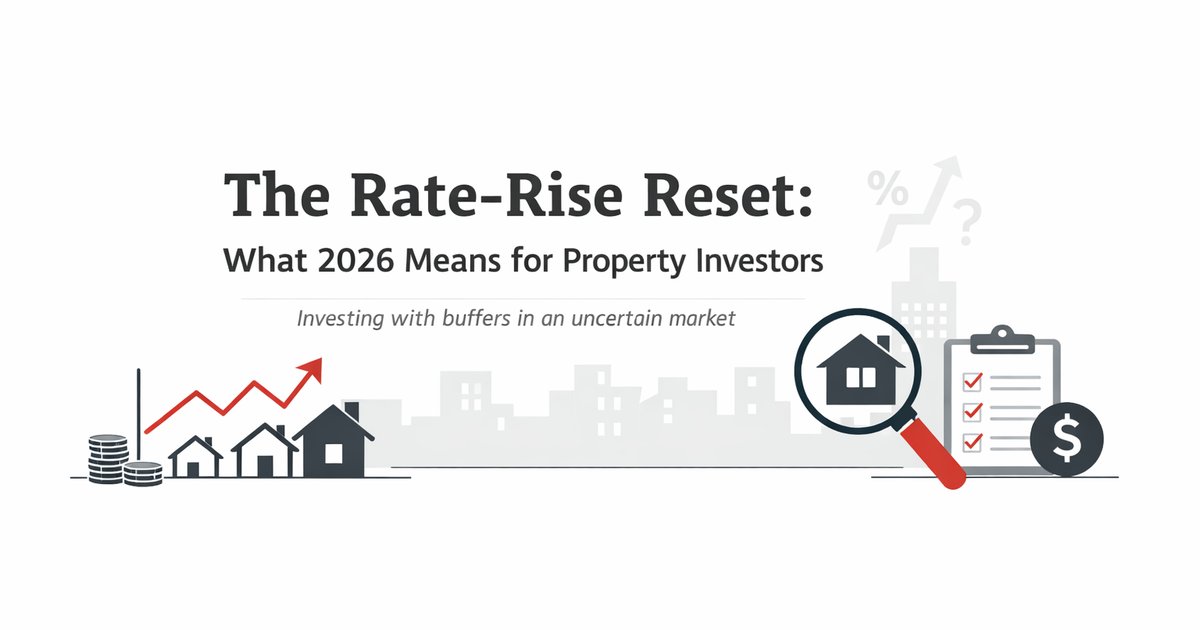As the financial year draws to a close, many Australian property investors are reviewing their numbers and exploring ways to strengthen their tax position. Smart preparation can make a real difference—reducing your tax bill, freeing up cash flow, and improving your overall returns.
Whether you’re holding one investment property or building a portfolio, understanding what’s claimable and how the rules work puts you in a better position to make confident decisions. From capital gains to depreciation, there are several areas where planning ahead can pay off.
This article walks through key tax strategies tailored to Australian investors so you can head into EOFY ready and well-informed.
Understanding Capital Gains and Losses
Capital Gains Tax (CGT)
If you sell an investment property for more than you paid, the profit is treated as a capital gain. This gain is added to your taxable income for the year. However, if you’ve held the property for longer than 12 months, you’re generally eligible for a 50% discount on the gain, which can significantly reduce how much tax you owe.
Using Capital Losses to Offset Gains
If you’ve sold other assets at a loss—such as shares or another property—you can use those losses to reduce the tax on your gains. This can lower your overall liability and help balance out a mixed performance across your investments. Many investors plan the timing of their asset sales to take advantage of this offset.
Maximising Superannuation Contributions
Concessional Contributions
Property investors can reduce their taxable income by making concessional contributions to their superannuation, up to $30,000 per year. These contributions are taxed at 15%, which is often lower than personal income tax rates. This approach can support long-term wealth building while lowering tax for the current financial year.
The Bring-Forward Rule
If you’re under 75, you may be able to contribute up to $330,000 in non-concessional (after-tax) funds over a three-year period. This rule allows investors to accelerate their super savings, especially after a strong year of returns or a property sale. Planning the timing of these contributions can make a big difference to future retirement income.
Leveraging Depreciation Deductions
Property depreciation is one of the most overlooked tools for improving cash flow. Investors can claim deductions for the gradual wear and tear of both the structure and the assets inside the property.
Capital Works Deductions
These apply to the structural parts of a building—such as brickwork, roofing, doors, tiles, and fixed assets. Properties built after 1987 may be eligible for a 2.5% annual deduction, spread over 40 years from the construction date.
Plant and Equipment Deductions
These cover removable items like stoves, dishwashers, carpets, blinds, and air conditioners. The deduction rates vary based on the asset’s effective life and purchase date. While second-hand residential properties have some limitations, new builds and renovations may still allow generous claims.
To make the most of these benefits, many investors choose to engage a qualified quantity surveyor. A detailed depreciation schedule ensures every eligible item is accounted for and claimed accurately.
Importance of Accurate Record-Keeping
Good record-keeping is essential for maximising your property tax deductions and staying aligned with ATO rules. It ensures nothing is missed when claiming expenses and helps protect you in case of an audit.
What You Should Keep Track Of:
-
Receipts and invoices for all property-related expenses (repairs, maintenance, insurance, etc.)
-
A logbook or travel diary for any property-related travel, especially for inspections or maintenance
-
Rental income records, along with related costs like advertising, agent fees, or legal expenses
Using cloud-based accounting tools or property-focused software can make this much easier. It helps you stay organised throughout the year, not just at tax time.
Conclusion
Smart tax planning isn’t just for accountants—it’s part of being a successful property investor in Australia. When you take the time to structure your strategy around capital gains, depreciation, super contributions, and good record-keeping, you’re not just ticking boxes. You’re putting more money back into your portfolio.
Getting these things right can mean the difference between an average year and a strong one.
Need help tailoring your tax strategy to your property goals?
Visit AbodeFinder.com.au and connect with our team. We’ll help you plan with confidence and build a portfolio that works harder for you.
















